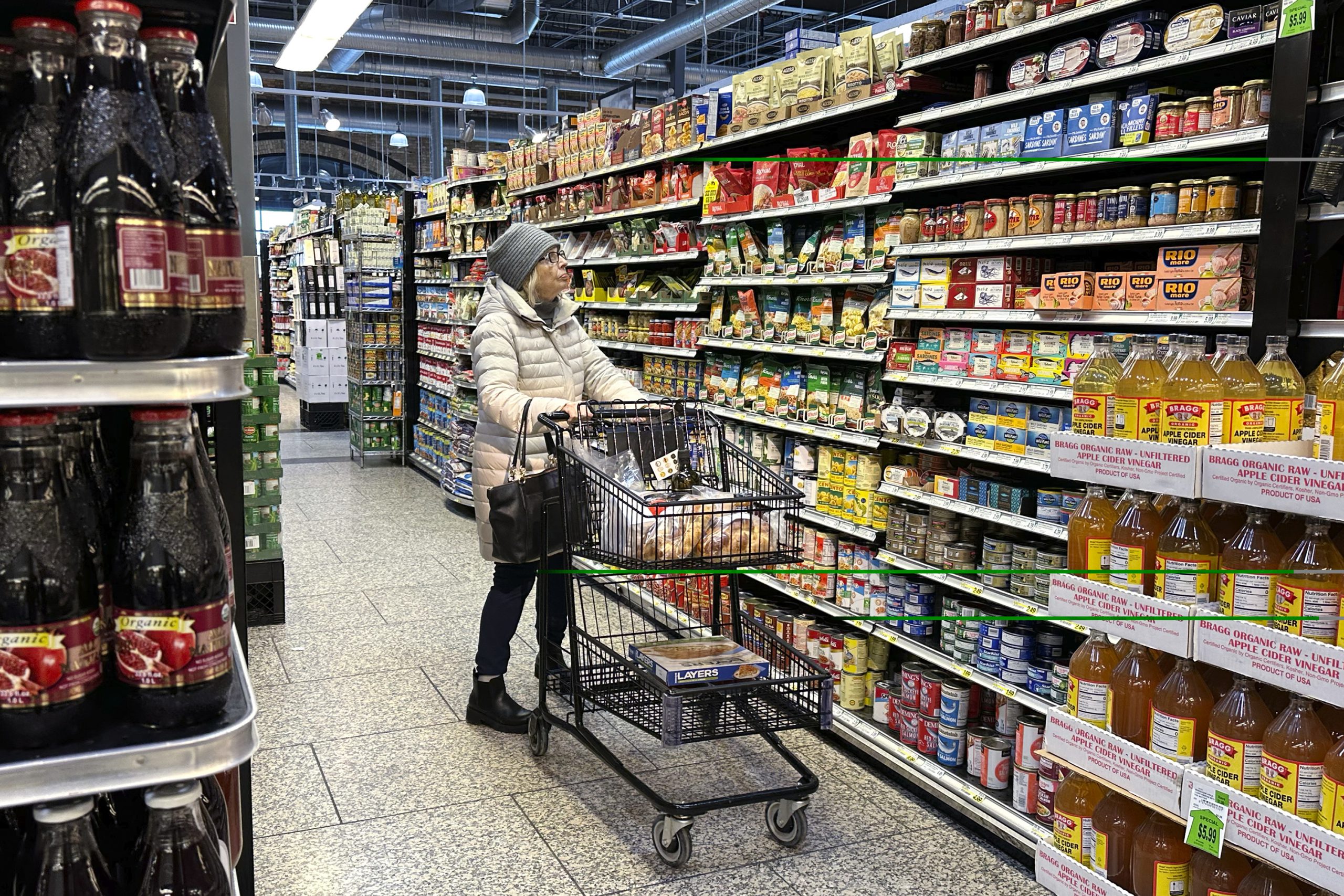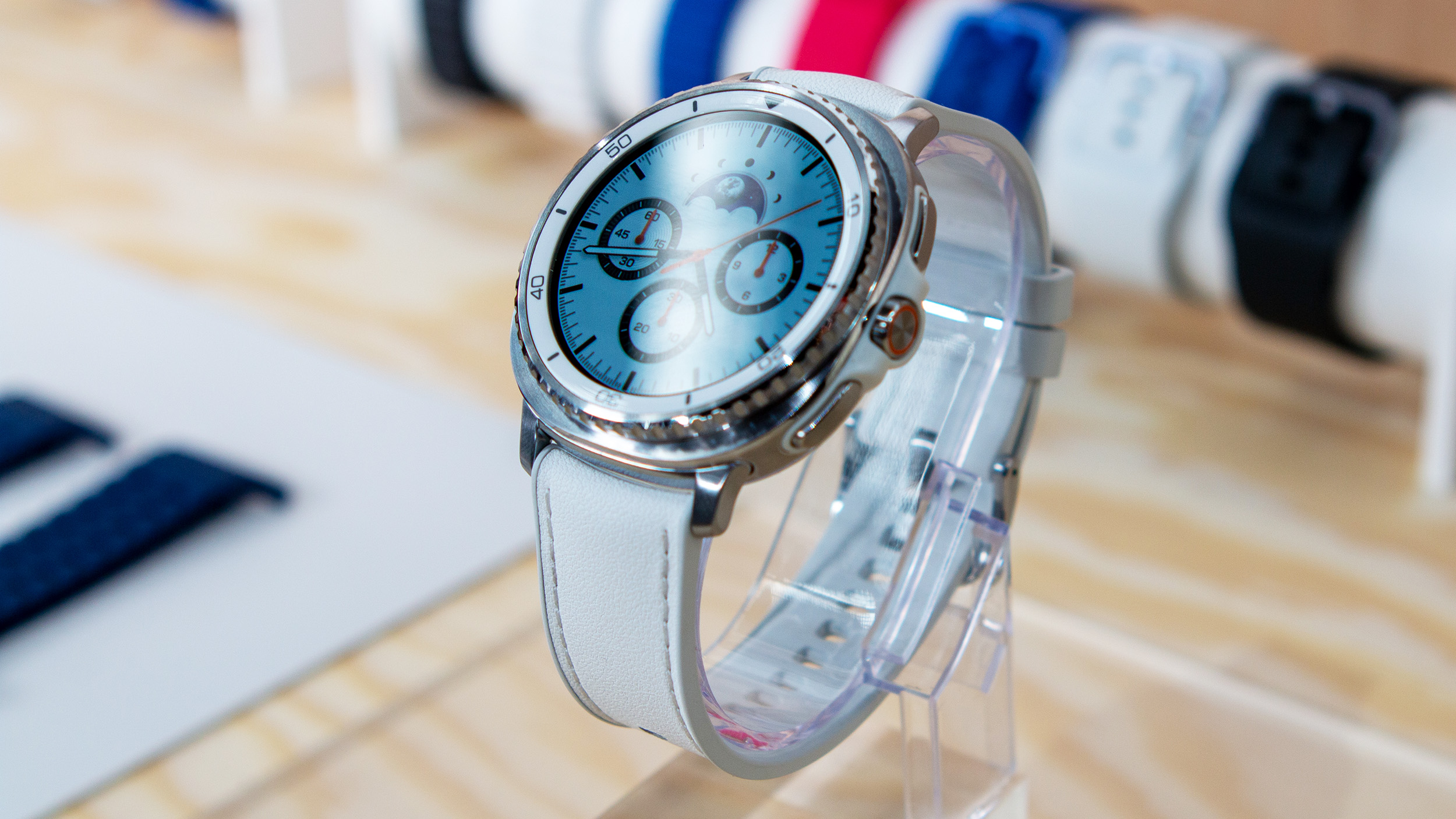The Deadly Stress Crisis: Why Everyone’s Drowning in Grocery Bills and Debt
Hello everyone. Let’s have a little heart-to-heart about the latest apocalyptic update from your local supermarket aisle – apparently, 53% of Americans are now officially stressed out of their minds over grocery costs. Yes, grocery shopping has become the final boss fight of your weekly life, and spoiler alert – inflation’s got plot armor.
But wait, it gets better. Nearly 1 in 5 of those stressed-out shoppers have managed to turn the once simple act of buying bread and milk into a financial side quest involving “Buy Now, Pay Later.” Or as I like to call it, “Buy Now, Cry Later” – because nothing says financial stability like taking on installment debt to fund spaghetti night. You think you’re playing Animal Crossing, building a quaint little community, but in reality, you’re in Skyrim with 12 side quests and your health bar flashing red.
Stress Olympics – Now With Bonus Ads for Debt
Here’s the thing: 75% of surveyed adults say one or more financial factors cause them major stress. Grocery costs, housing costs, income security, and health care all scored high on the “things causing ulcers” chart. For nearly half, housing stress is right up there with grocery stress – because what’s the point of affording bread if you don’t have a kitchen to put it in? And yes, 4 in 10 list health care costs as a major stressor, which frankly makes me wonder why we’re not bulk-buying anti-anxiety meds at Costco.
Apparently, adults under 45 are leading the leaderboard in the agony game – higher stress levels about earnings, housing, student debt, and childcare than older adults. Which makes sense, given young adults today have to somehow unlock the “own a home” achievement while battling a world economy that seems determined to lock it behind a DLC paywall called “Lifetime Financial Struggle.”
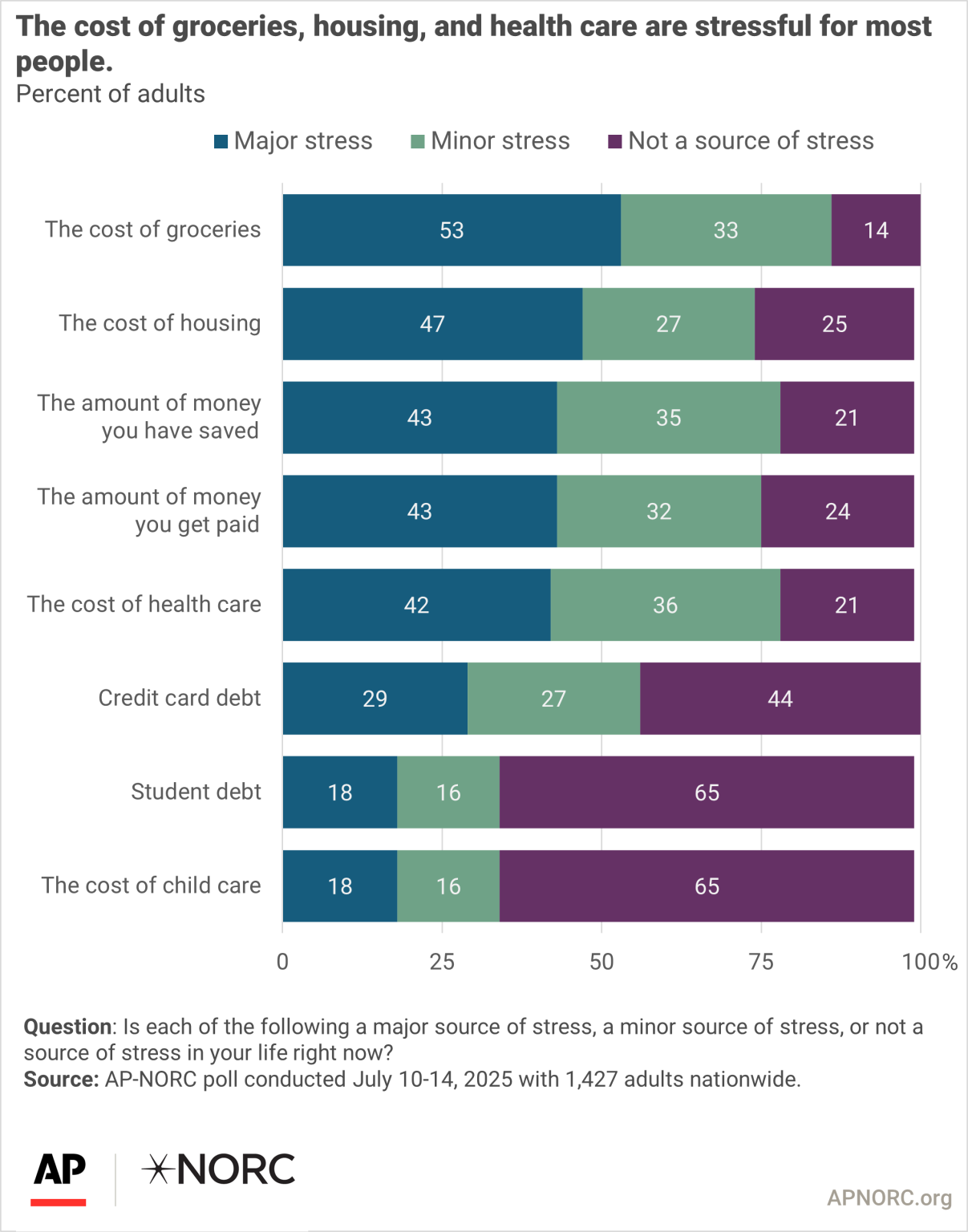
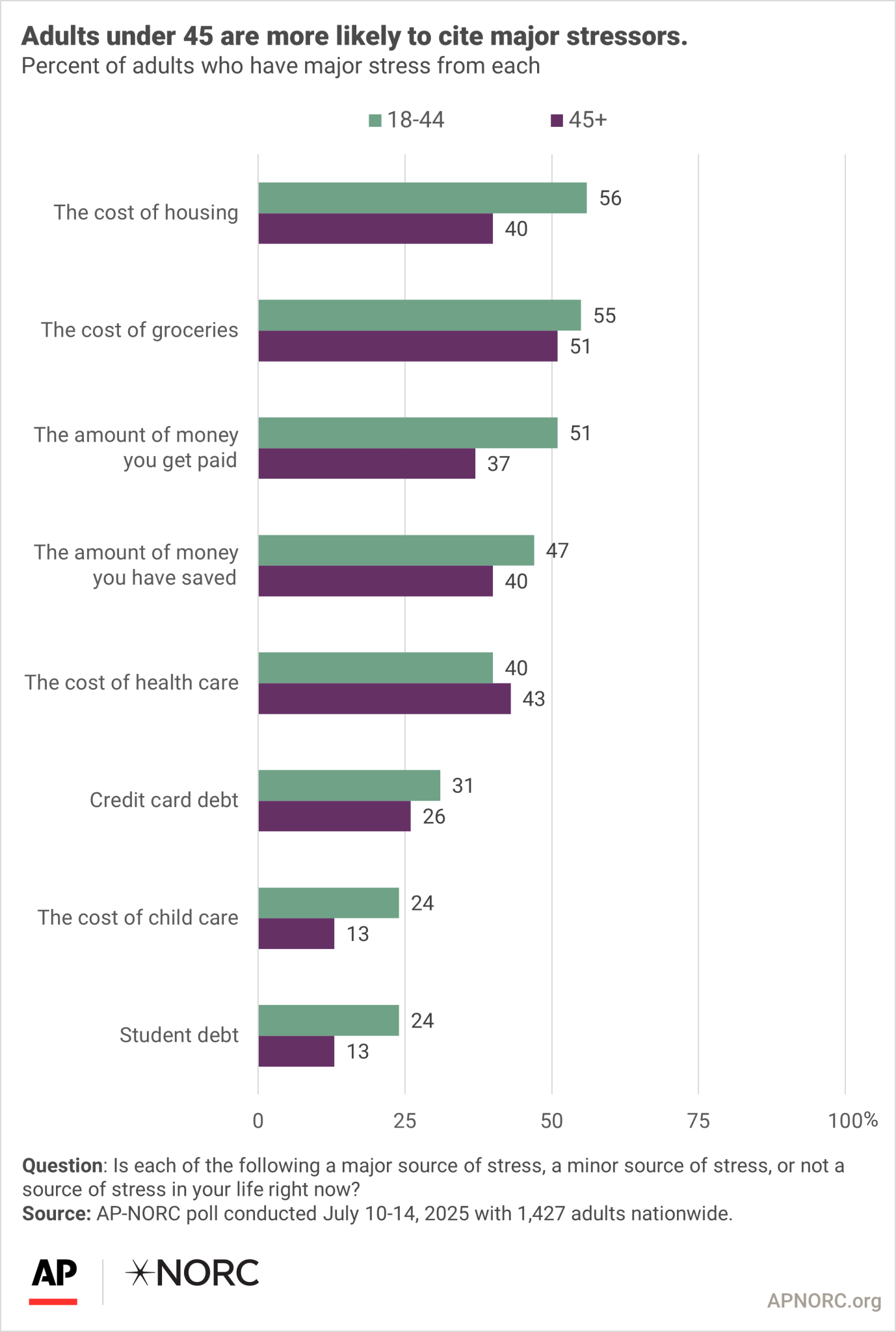
The Buy Now Pay Later Power-Up
The research drops another shiny, depressing gem: people with major financial stress are far more likely to use Buy Now Pay Later services for groceries, medical bills, or even takeout. Medical bills and dental expenses? 21% of stressed folks swiped that sweet, sweet BNPL card there too – because nothing says “health care system in crisis” like putting your root canal on layaway. It’s like finding out your healer has run out of mana and is now asking you to Venmo them before they can heal you.
“Buy Now Pay Later” isn’t a magical solution – it’s just kicking your financial problems down the road until they crit you in the back when you’re not looking.
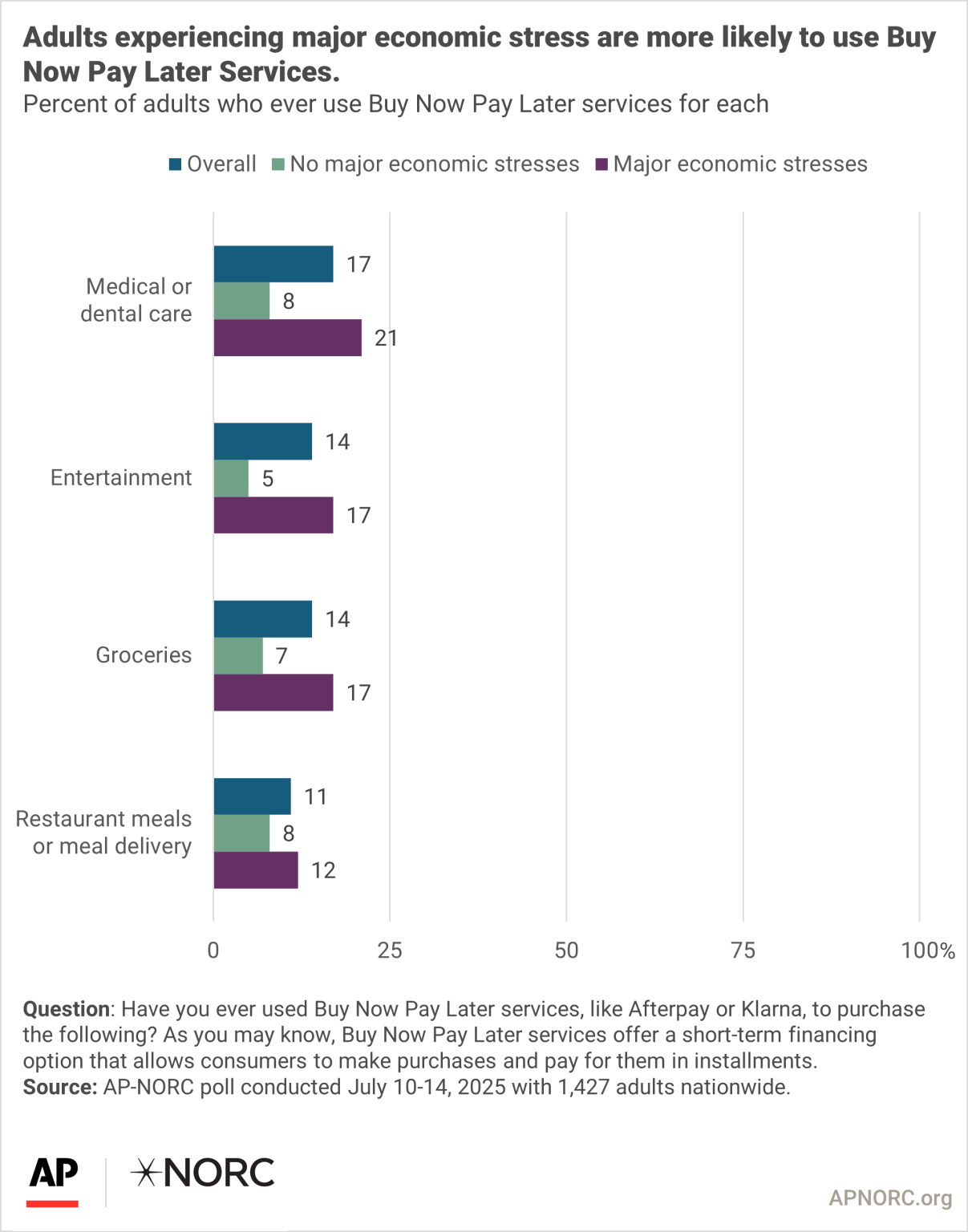
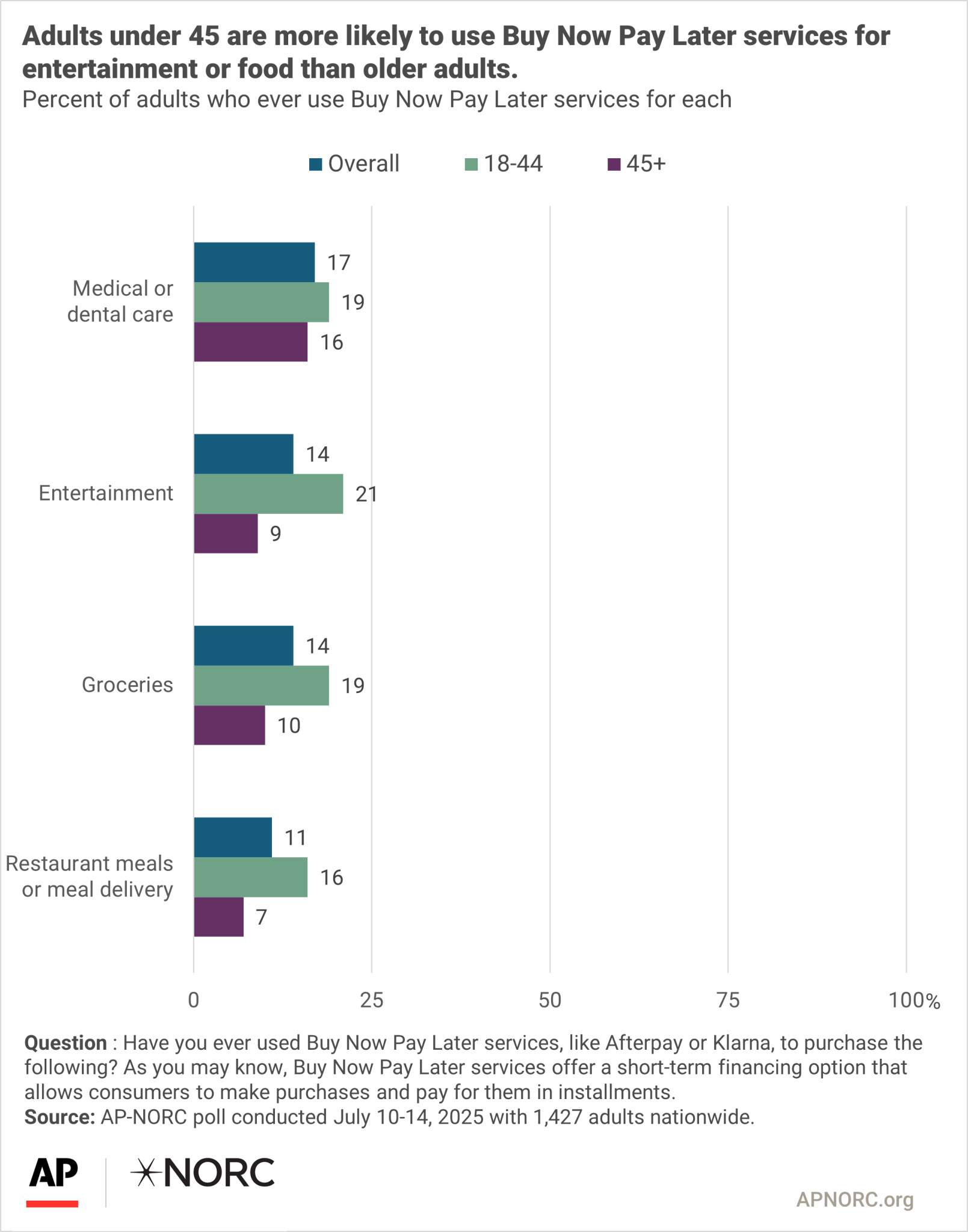
Gaming the Economics – Spoiler: The House Always Wins
This is the thing about these trends – they’re not just normal market “fluctuations,” they’re the equivalent of the game developer tweaking difficulty mid-run. Younger adults are now expected to fight inflation, survive predatory lending mechanics, and somehow keep their HP bar (mental and physical health) full. And yes, older adults have their own set of challenges, but younger ones seem to have been dumped into a full loot drop survival mode without any starter gear.
Pollsters even oversampled 18-29-year-olds in the study, probably because they knew that’s where the most tragic gameplay footage was coming from. The final stats? Margin of sampling error ±3.6% overall, ±6.6% for the younger group. Translation: even with small statistical error, the outlook isn’t exactly sunshine and RNG luck.
Final Verdict
Look, if groceries are now pushing half the population into debt gimmicks, we need to stop pretending this is just “how the economy works.” This isn’t some minor patch update to the cost of living – this is a full-on bug in the system, and the developers (read: policymakers, corporations, whoever’s holding the loot chest of resources) have zero interest in fixing it because guess what? Every step of your financial misery is monetizable.
Overall impression? Bad. Very bad. The fusion of skyrocketing essentials prices with debt-based survival hacks is not a quirky life hack – it’s a symptom of a broken design that turns basic needs into premium-tier content behind a massive paywall. And with each passing month, that wall gets taller, the grind gets harder, and the rewards get smaller.
And that, ladies and gentlemen, is entirely my opinion.
Food, housing, & health care costs are a source of major stress for many people, https://apnorc.org/projects/food-housing-and-health-care-costs-are-a-source-of-major-stress-for-many-people/

